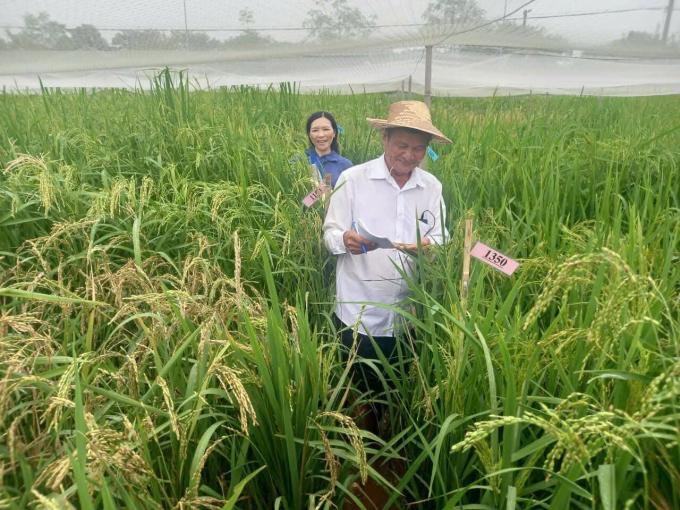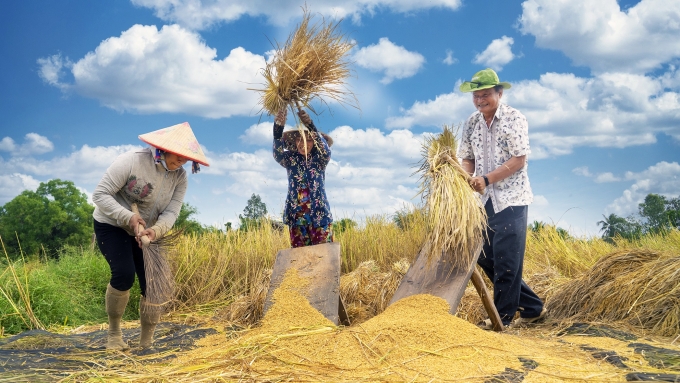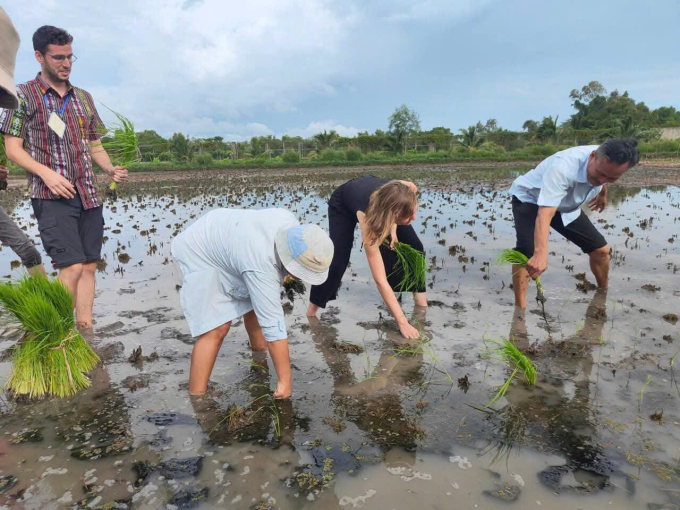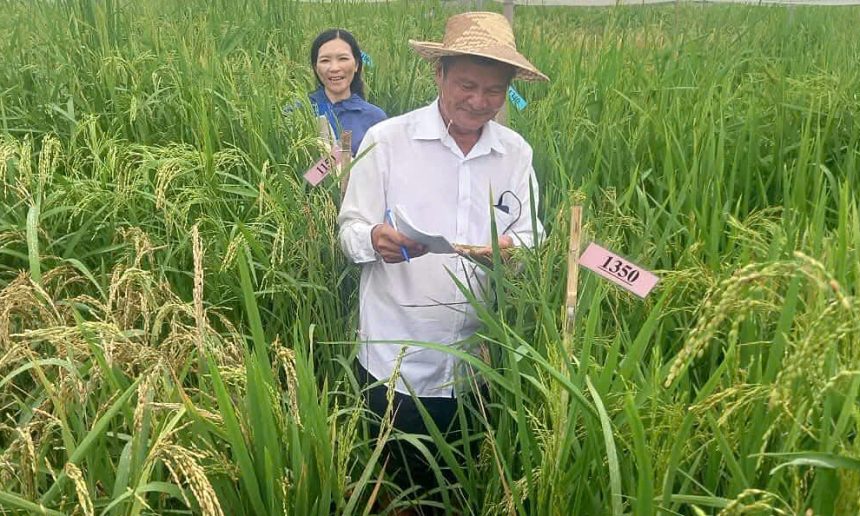An GiangSpending 2.5 hectares of family land to preserve and restore seasonal rice varieties, Mr. Le Quoc Viet, 61, turns rice fields into a place to teach traditional cultivation culture for the younger generation.
Mr. Viet was born into a poor family, many children in Minh Luong commune, Chau Thanh district, Kien Giang province (now Chau Thanh commune, An Giang province). Losing his father from an early age, a school session, a mother -in -law, he was the only one of the brothers to pursue the word to the end. In 1982, he was one of the four students of the university district.
“At that time, college did not lose tuition fees, each month was allowed to provide 13 kg of rice, 26 dong. I work part -time from selling cakes, rice miles to plucking sugarcane leaves to send money to my mother,” he said.

Mr. Viet with seasonal rice to research and preserve seeds. Image: The character provides
Graduated from Can Tho University with excellent achievements, he was kept in intensive school and promised the opportunity to study abroad. However, he refused to return to his hometown to take care of his mother and children.
Experiencing many positions from officials of the Agricultural Department, the Farmers’ Union, to the Director of the Cooperative, he claimed to be the one who “tasted enough agricultural, farmers and rural areas”. Despite understanding the techniques of high -yielding rice, he always suffered from childhood memories of rice growing season with family, living in a rich and peaceful field ecosystem.
“After sowing rice, it is natural for the sow. Floods come back, the copper fish pulls up to reproduce, eats pests, waste fertilizer as fertilizer.
Eight years ago, with the desire to store the elite of seasonal rice, he persuaded his family to spend all 2.5 hectares of land to plant and restore old varieties. He contacted the institutes, the school would like to receive and receive 5 precious types: a dust, a bird, three dust, coal sticky rice, yellow bird nails, each of only 200 seeds. He tried to try and take care of them thoroughly.

Mr. Viet and farmers harvest rice season. Image: The character provides
At first, many people thought that he was “crazy”, but he did not mind. Gradually, each flock of fish and birds returned, the ecosystem recovered. “The land is like humans, after working hard, it needs to be rested. Each season of rice is finished, I let the land rest to recover,” he said.
After several successful breeding cases, he expanded the area to 2.5 hectares and rented nearly 10 hectares of neighboring land just for conservation. However, that journey Mr. Viet encountered many obstacles such as: degenerative varieties, birds to eat clean when blooming … He persisted in admiration, covering the growing net.
Part of the same as after harvest was sent back to the institutes and schools for research. “Many long -time rice varieties will lose the ability to germinate, must be replanted to rejuvenate. If not, these precious varieties will disappear,” he shared.
Up to now, Mr. Viet has restored 40 seasonal rice varieties, coordinated with Can Tho University to rejuvenate 850 local varieties, selecting two separate varieties: TV1 and TV2. Rice products of golden nails, fallen bird nails are recognized for 3 -star OCOP at the provincial level.

Mr. Viet (right) guides foreign tourists to transplant rice. Image: The character provides
Thuan Thien rice cultivation, yielding only 1-2 tons/ha, he admitted that every case lost even though the price was high. The pension and the saving money are all accumulated for rice fields. “My grandmother grumbles all the time, but I can’t leave. Everyone chooses to be gentle and arduous for anyone,” he said.
Recently, he opened a farm in combination with agricultural production and tourism, and had more income and promoted seasonal rice. Each week, many groups of students, students in agriculture and international tourists visit, listen to him explain, experience harvesting, plucking rice, eating rice in the middle of the countryside.
He also restored many traditional agricultural tools such as rice, mill, transplanting … so that the younger generation better understand wet rice culture. In his spare time, he wrote a book about rice life, interviewing the elders to supplement documents. The books he donated to the libraries of schools, friends and students.
In 2023, Mr. Viet was honored by the Central Vietnam Farmers Association as “the scientist of the farmer”, along with many certificates of merit and certificates of merit at the provincial and district levels. But for him, the biggest reward is to be preserved and spread the knowledge of traditional rice cultivation for the next generation.
Ngoc Tai



